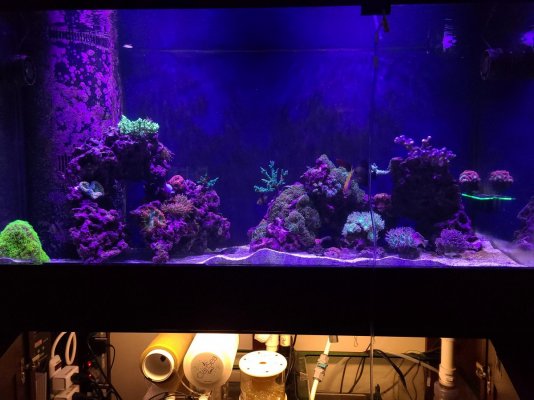I've been learning a ton about water chemistry and how to maintain an SPS dominant tank. I've been struggling with keeping acros alive for very long after adding to my tank even though existing coral do fine and my levels should be ok for acros (9.0 dkh, 475 Ca, 1300 Mg, P04 .08, N03 7). ICP test shows nothing significant. Then it hit me after reading about how sensitive some sps are to rapid changes in Alk. It turns out, my local fish stores all run their Alk at different levels (8.0 & 9.8). I was only dripping the acros for about an hr before running them in a dip and placing in my tank.
So how could I possibly acclimate an Acro with a 1.0 difference in Alk so that it doesn't get shocked and RTN?
So how could I possibly acclimate an Acro with a 1.0 difference in Alk so that it doesn't get shocked and RTN?


















